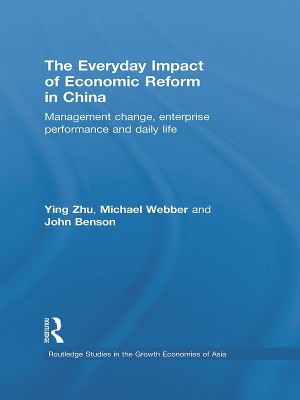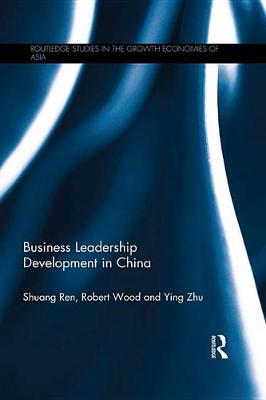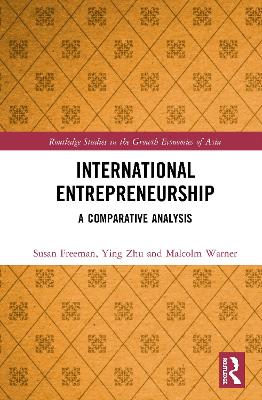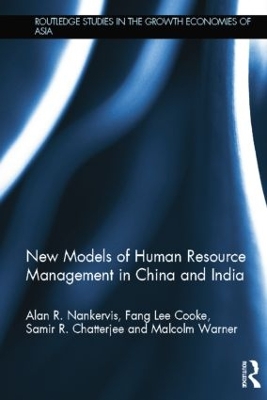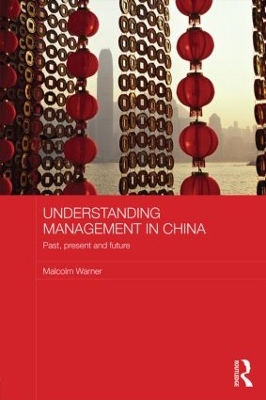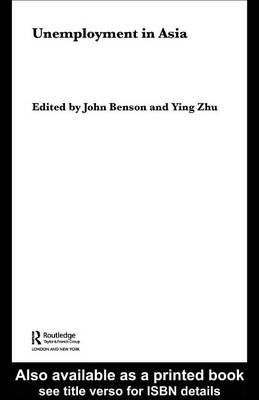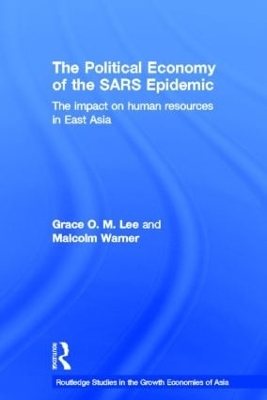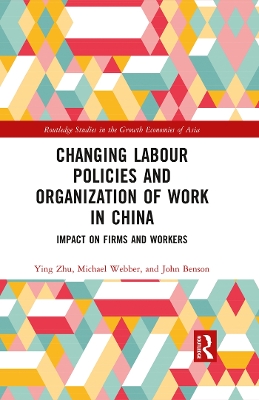Routledge Studies in the Growth Economies of Asia
8 total works
The Everyday Impact of Economic Reform in China
by Ying Zhu, Michael Webber, and John Benson
During the past 30 years, China has undergone extensive economic reform, replacing the government’s administration of enterprises with increasing levels of market-oriented enterprise autonomy. At the heart of the reform are changes in the employment relationship, where state control has been superceded by market relationships. These reforms have had far-reaching implications for many aspects of everyday life in Chinese society. This book appraises the impact of the economic reforms on the employment relationship and, in turn, examines the effects on individual workers and their families, including salaries, working conditions and satisfaction, job security and disparities based on location, gender, age, skill, position and migrant status. In particular, it focuses on how changes in the employment relationship have affected the livelihood strategies of households. It explores the changing human resource management practices and employment relations in different types of enterprises: including State-Owned Enterprises, Foreign-Owned Enterprises and Domestic Private Enterprises; throughout different industries, focusing especially on textiles, clothing and footwear and the electronics industry; and in different regions and cities within China (Beijing, Haerbin, Lanzhou, Hangzhou, Wuhan and Kunming). Overall, this book provides a detailed account of the everyday implications of economic reform for individuals and families in China.
Business Leadership Development in China
by Shuang Ren, Robert Wood, and Ying Zhu
This book argues that China’s businesses, and hence China’s future economic development, face a huge crisis in that there is a considerable "leadership gap" in China, with a shortage of competent business leaders, at a time when new leadership skills are required urgently, as China’s businesses evolve rapidly and engage ever more with the global economy. Moreover, the book argues, training is an undervalued and often marginalised activity in Chinese companies. The book outlines the nature of this problem, and goes on to demonstrate that there is a new breed of manager emerging in China, aware of the need to upgrade management skills, moving away from skills appropriate in traditional industrial firms, and emphasising more flexibility, positive engagement with workers, and competence in the market economy. The book includes an evaluation of different management approaches in China, reports on extensive original research, including interviews with practising managers, and sets out how self-development in widespread, deep and important.
This book explores the importance of entrepreneurs in driving economic growth as the world economy grows and becomes more integrated and more challenging. It examines the situation in both advanced and developing countries and shows how the entrepreneurial orientation of the founders of small and medium sized enterprises has resulted in phenomenal growth, often fuelled by innovation and new technologies. It contrasts the experiences of Chinese family business in China and among the overseas Chinese with the experiences of family businesses in the United States and Europe. One important conclusion is that there has been a noticeable fall in entrepreneurial proclivity in the advanced economies, in contrast to the position in emerging economies.
New Models of Human Resource Management in China and India
by Alan R. Nankervis, Fang Lee Cooke, Samir R. Chatterjee, and Malcolm Warner
This book presents a comprehensive analysis of the similarities and differences of contemporary human resource management systems, processes and practices in the two increasingly important economic great powers in Asia. It covers the full range of human resource management activities, including recruitment, retention, performance management, renumeration, and career development, discusses changing industrial relations systems, and sets the subject in its historical, social and cultural contexts. It examines newly emerging strategies, and asssesses the extent to which human resource management systems in the two countries are coverging or diverging.
China has become one of the fastest-growing economies ever seen in the world in recent times. In the last three decades, China has transformed itself from a command economy to a market one, albeit a nominally socialist one, and its management systems have been reformed accordingly. In the light of these changes, Malcolm Warner, one of the leading authorities on management in China, explores the past, present and future of Chinese management. The first part of the work examines the history of management practices in the ‘Middle Kingdom’, outlining the influence of traditional Chinese values, especially the Confucian inheritance, and the legacy of the imperial bureaucracy with its meritocratic examination system, as well as the role of industrialization and the influx of foreign-owned businesses in the late nineteenth century and the twentieth century. It next goes on to consider the current state of China’s management, showing how a new breed of manager has evolved since the beginning of Deng Xiaoping’s reforms in the late 1970s and 1980s. The resulting impact of this strategy which has continued into the 1990s and the 2000s, up to the present day, is then examined. The final part of the book concludes with reflections on how management in China is likely to develop in the near future, especially on how far it will converge with global practices or to what degree an indigenous form of management 'with Chinese characteristics' will prevail.
The rate of economic change in East Asia over the past two decades has been astounding. High levels of growth have been experienced by a number of the region's developing economies, centralized systems have developed large market sectors, Japan has suffered a prolonged downturn and the 1997 crisis plunged the region into economic turmoil.
This volume presents an in-depth analysis of the effects of these changes on employment in the region. Chapters are devoted to market restructuring in China and Vietnam, the Asian crisis and recovery, and Japan's business doldrums. The unique case of Malaysia - one regional economy that needs to import workers - is also brought into play, as is the example of high-tech Taiwan. Underpinning these case studies is a common theoretical framework and a strong structure for understanding.
With its solid research the book focuses on a relatively unexplored aspect of one of the world's most dynamic economic regions.
This book discusses the political economy of the SARS epidemic and its impact on human resources in East Asia, as it occurred in 2003. The epidemic spread from the People's Republic of China, to Hong Kong, Singapore and Taiwan, amongst other countries in East Asia and as far away as North America, particularly Canada, the EU and elsewhere. The book looks first at earlier precedents, such as the Black Death and the way in which the potential threats of the recent epidemic were diffused across the world in 'instant news' reports; examining why it was dubbed the first 'global epidemic' due to its media coverage and how far the threat started a psychological 'tsunami' of fear and panic. Next, it examines the anticipated economic consequences arising from this phenomenon and how it affected the business of everyday life, market behaviour and human resources in the Chinese and Overseas Chinese economies. It focuses in particular detail on the cases of the PRC, Hong Kong, Singapore and Taiwan. It concludes with a discussion of the issues involved and lessons to be learnt, and draws conclusions both for theory and practice vis-a-vis future pandemics that may threaten the global economy in the coming decade and the public policy issues involved
Changing Labour Policies and Organization of Work in China
by Ying Zhu, Michael Webber, and John Benson
The transformation of China’s economy from a centrally planned to a market-oriented system has had a profound impact on management systems and practices at the firm level, particularly changes to the organization of work. One of the consequences of this is increasing social disparity reflected through inequality of employees’ income and employment conditions. This book, based on extensive original research including interviews and questionnaire surveys in different regions of China, explores the exact nature of these changes and their effects. It examines state-owned enterprises, foreign-owned enterprises and domestic private enterprises, discusses the extent to which employees are satisfied with their employment conditions and whether they think their employment conditions are fair and outlines how managers and employees in China expect conditions to change in future.
